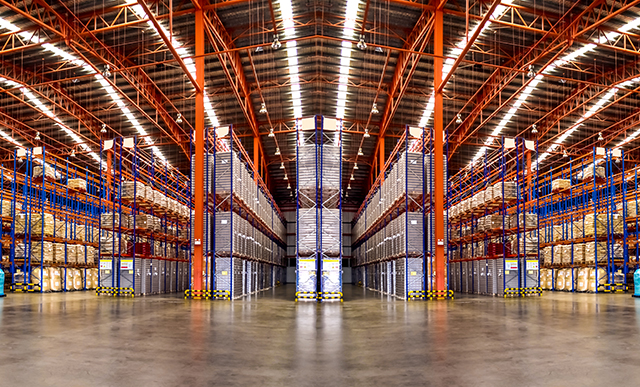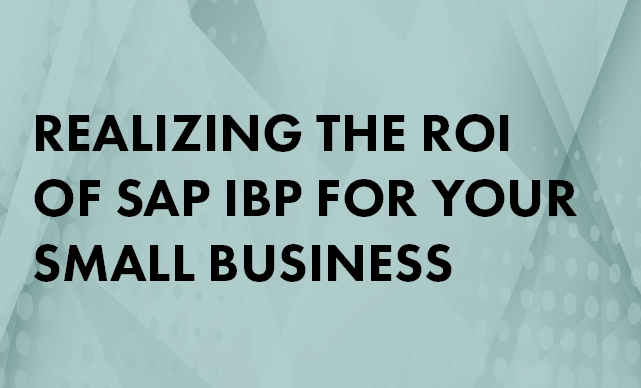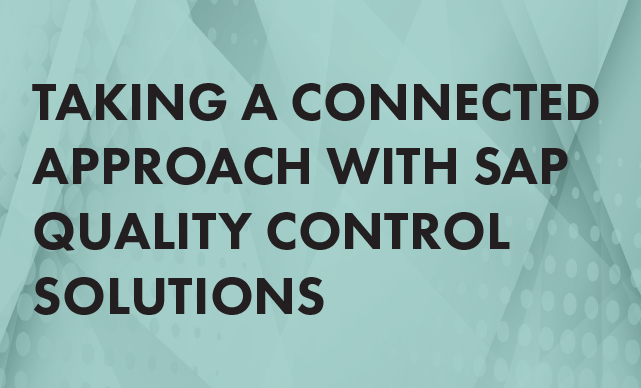To develop intelligent and agile and autonomous supply chain networks, enterprises require a strong digital foundation that is supported by AI technologies. This pivot towards AI-centric methodologies not only promises greater agility and responsiveness across supply chain networks but also reflects the expanding organizational commitment to integrating generative AI, while underscoring the importance of sustainability and cybersecurity in modern supply chains.
Accenture brings together its expertise in strategy, digital, consulting, technology delivery, business process, and application management services to meet the specific supply chain transformation needs of organizations while focusing on delivering business value, fostering innovation, and incorporating sustainability into all solutions offered.
Utilizing the full range of SAP solutions and insights, Accenture empowers clients across industries to revolutionize their digital supply chain solution stack. Accenture's expertise and broad range of services enable the company to support clients across the end-to-end supply chain.
As a trusted partner, Accenture collaborates with SAP on new functionalities that empower clients across industries. Accenture’s SAP industry specialists, enabled by Accenture’s Strategy and Consulting practice, have end-to-end views of industry value chains and apps, accelerators and tools built for SAP technologies to solve industry-specific issues, create new opportunities and accelerate value realization.
Michel Roger, Managing Director – Supply Chain & Operations, SAP Business Group at Accenture, highlights, “Clients find it valuable that Accenture’s SAP supply chain business brings the combinatorial power of our people, delivery methods, pre-configured assets and accelerators, and experience across all capability areas to deliver tangible value across 19 industries and five functions. Our clients bring their most complex projects to the trusted hands of our 85,000+ SAP practitioners including 30,656 who are SAP-certified professionals—the highest number globally across all SAP partners. And, through our 40-year relationship with SAP and our extensive ecosystem of more than 230 partners, we help clients design and implement interoperable, multi-provider solutions—helping SAP systems work seamlessly with other technologies to multiply effectiveness and reduce risk.”
For Accenture, a significant portion of the value derived from SAP S4/HANA® is attributed to the supply chain domain. Accenture’s newly launched Supply Chain Nerve Center, powered by SAP technologies, introduces multiple use cases across the supply chain functions like plan, source, make, deliver and service covering 8 industries. This initiative aims to provide companies with real-time visibility of the supply chain, and enhancing the efficiency, speed, and precision of end-to-end supply chain processes. The solution, built on SAP technologies, aims to reduce risk, enhance visibility and support sustainability goals and capitalizes on many Accenture developments, including a supply chain resilience stress test in partnership with the Massachusetts Institute of Technology (MIT) that identifies potential points of failure, assesses related financial exposures, and defines appropriate mitigation strategies.
The Supply Chain Nerve Center also incorporates Enterprise Navigator, a homegrown data-driven tool that identifies focus areas for the most significant business value by finding opportunities to standardize processes. Additionally, embedding digital twin simulation software from Cosmo Tech, into the nerve center helps organizations see vulnerabilities in their supply chain, simulate the behavior of their supply chain under heavy loads, and build robust mitigation plans throughout their planning process. The combination of these tools fosters transparency and visibility, which further drives decarbonization, traceability and trust into supply chain operations. The Supply Chain Nerve Center has already shown success, with Accenture and SAP collaborating on hundreds of supply chain transformations utilizing SAP IBP and components of the solution.
In addition to integrating with the SAP Integrated Business Planning (IBP) solution, Accenture’s supply chain nerve center offering can interface with other SAP solutions such as SAP S/4HANA®, SAP Business Network, SAP Business Technology Platform (BTP), SAP Datasphere, SAP Analytics Cloud solutions etc. With open architecture and composable technology approach, the offering integrates with SAP software-compatible industry solutions from other ecosystem providers.
Compressing Transformation on SAP Technology with Gen AI
In response to supply chain disruptions, Accenture sees generative AI applications as an essential investment area for organizations. Accenture's SAP Business Group utilized generative AI in launching an initial set of 25+ solutions in GenWizard, the company's generative AI companion within its automation platform. These include diagnostics and insights to enable a modern digital core, acceleration of solution delivery with SAP Business Technology Platform (BTP), increased automation, testing and defect resolution, and continuous solution improvement and value realization based on real-time analysis and insights. GenWizard connects enabling systems, data and processes across functions and platforms, allowing for rapid changes in multiple business areas at once.
Roger emphasizes, “There are countless opportunities to apply generative AI across end-to-end supply chain networks. Performance gains are waiting to be tapped in everything from sourcing and planning, through manufacturing and fulfilment, to aftersales and service. There’s also significant cross-functional value to be gained in areas like sustainability, customer-centricity, supply chain resilience and supply chain data analysis. Supply chain leaders that recognize this can act quickly to capitalize on generative AI’s rapid acceleration — and turn today’s immense promise into resetting the performance frontiers of tomorrow. Building on previous advances in supply chain management artificial intelligence — in areas like control tower visibility — generative AI offers a range of new capabilities including contextual understanding, conversational capabilities and content generation.”
Accenture and SAP are also exploring how generative AI and Large Language Models (LLM) can further augment the Supply Chain Nerve Center's capabilities, including a generative AI-enabled chatbot that suggests solutions in response to supply disruptions. Developments such as the chatbot are aimed at minimizing revenue impact and improving employee productivity. Several clients have already seen success by employing generative AI-based translation solutions and application programming interfaces for code automation, resulting in less manual workloads as well as increased speed and quality.
Building on the company’s $3 billion investment in AI and tapping into the Accenture Center for Advanced AI, Accenture is collaborating with SAP to help organizations adopt generative AI across their core business processes.
Together, the companies are creating AI-enabled solutions and use cases that can enhance an organization’s investment in SAP® technology by improving business performance and employee productivity, accelerating time to value with SAP S/4HANA®Cloud. Accenture is expanding its capabilities in SAP Business AI technology and SAP Business Technology Platform (BTP) to help clients power critical business processes in the cloud and enhance the way enterprise users interact with SAP applications. It is also helping enterprises leverage Joule®, SAP’s new natural-language generative AI copilot, to take the SAP software experience to the next level by fundamentally changing how business decisions are made.
Accenture is applying investments in Gen AI to Accenture’s SAP supply chain business by exploring new solutions and use cases across the following areas in order to pave the way for next gen autonomous supply chain networks:
- Leveraging generative AI to help accelerate the transition from legacy SAP ERP (SAP ECC) to SAP S/4HANA® Cloud by auto generating code, documentation and test scripts;
- Infusing generative AI into industry-specific applications running on SAP BTP to strengthen and help accelerate interoperability within an organization’s digital core;
- Enhancing a digital twin use case based on supply chain management software from SAP, including a generative AI-enabled chatbot that suggests a solution in response to supply disruptions to minimize revenue impact;
- Extending and personalizing a digital-twin chatbot based on financial software from SAP to improve ad-hoc reporting and analysis performed by customer finance organizations.
Case Study - Baker Hughes’ Journey with SAP
Energy technology firm Baker Hughes Company undertook a bold overhaul of its procurement processes, collaborating with Accenture to deploy SAP Ariba and SAP Fieldglass solutions, integrated with SAP Business Network for Supply Chain. Accenture supported Baker Hughes in modernizing and integrating its technology infrastructure by implementing a range of SAP Ariba and SAP Fieldglass solutions to streamline procurement and enhance supply chain transparency and resilience. This effort involved adopting SAP Ariba Sourcing to standardize and quicken sourcing cycles, and SAP Ariba Contracts to centralize contract management. The SAP Ariba Buying and Invoicing solution streamlined the procure-to-pay process, centralizing the search for indirect goods and services. Furthermore, Baker Hughes enhanced trading partner collaboration by adopting the SAP Business Network for Supply Chain, facilitating easier transactions with suppliers and bolstering agility, visibility, and resilience against economic and geopolitical challenges. The implementation of SAP Ariba Invoice Management and SAP Business Network Commerce Automation improved invoice processing and payment timelines, strengthening supplier relationships. Baker Hughes utilized SAP Fieldglass solutions for flexible labor management, enhancing procurement and management of its contingent workforce.
The below outcomes were achieved by the company:
- Centralized procurement operations for greater efficiency and stronger control of spending in 120 countries
- Eased transacting with suppliers and improved supplier collaboration
- Introduced catalogs to better manage indirect spend and reduce tail spend
- Minimized maverick spending by using the guided buying capability
- Reduced risk with greater visibility across its external workforce, with detailed tracking on each assignment
What does this mean for SAPinsiders
Periodically assess supply chain performance: Take the time to conduct comprehensive assessments, focusing on areas such as resiliency, adaptability, sustainability and security. Consider utilizing advanced and integrated tools to gain real-time insights into operations and identify areas of improvement and consulting industry experts to ensure the assessments conducted are thorough and actionable.
Explore applications of generative AI solutions: By integrating advanced generative AI technologies with SAP platforms, companies can optimize efficiency and responsiveness across core business functions. Generative AI offers significant potential in areas such as forecasting, automation, and customer interaction, empowering organizations to address challenges proactively and enhance overall performance.
Evaluate the ROI of a supply chain implementation or overhaul: Carefully determine the risks and rewards of supply chain overhauls. Consider scalability, complexity, and potential disruptions associated with the new solutions. Baker Hughes' successful journey with SAP exemplifies the potential of a bold and meticulously planned overhaul to yield lasting operational improvements.






